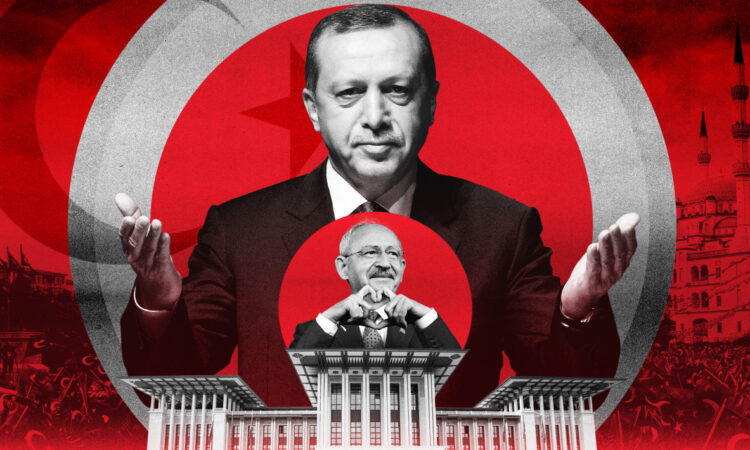
President Recep Tayyip Erdoğan has defied the polls to lead his main rival in the first round of voting in Turkey’s make-or-break presidential election.
With just over 99% of ballot boxes opened, Turkey’s election council confirmed that Erdoğan had received 49.4% of votes, while his main rival, Kemal Kılıçdaroğlu, had scored a disappointing 44.96%. Third-placed candidate, the ultranationalist Sinan Ogan, won 5.2% of the vote.
The Guardian reported the near-complete results “strongly suggest” the election will go to a run-off on 28 May since neither of the two leading candidates received more than 50% of the vote. However, short of an outright victory for Turkey’s long-time leader and with Erdoğan’s People’s Alliance, led by his own Justice and Development (AK) Party, predicted to easily secure a majority in parliament, “it was the worst result the country’s opposition could have imagined”, said The Economist.
News without agenda
Try The Week magazine today and get straight to the heart of the issues that matter.
International attention has unsurprisingly focused on the geopolitical ramifications of the election, although for most Turks it is the country’s economy that has been the main concern in the run-up to polling day.
What did the papers say?
In the first decade of his 20-year rule, Erdoğan “rode an economic boom – driven in part by manufacturers and exporters from conservative Anatolian heartlands that supported his ruling AK Party – turning Turkey into one of the buzzing emerging markets to watch”, said Politico.
Over his second decade, “the story was exactly the opposite”, said the news site, “as the president took absolute control over monetary policy and insisted on his unorthodox theory that high interest rates cause inflation. Prices raged out of control and debates over the cost of staples, from onions to cucumbers, have figured prominently in the run-up to the 14 May election.”
Reuters said these “unorthodox and heavy-handed polices” have sparked a series of currency crises, double-digit unemployment, a cost-of-living catastrophe, annual inflation hitting 85% last year and, crucially, foreign investors abandoning Turkish assets in droves.
“Suffering from a massive credibility gap, a victorious Erdoğan would not be able to lead Turkey towards a rapid economic recovery,” said Middle East Eye (MEE). An intervention from the International Monetary Fund (IMF) would become “absolutely necessary”, it said.
On the campaign trail, the president hinted that he could assemble a new team to try to stem the economic bleeding and attract all-important foreign investment, but a win in the run-off combined with a parliamentary majority would see his low-interest rate policy continue and “capital restrictions expanded to full-scale controls”, said the Middle East Institute.
By contrast, Kılıçdaroğlu has “a highly visible and experienced team that could quickly stabilise the economy”, said MEE. He has indicated he would “shift back toward orthodox economics if he wins”, Bloomberg reported. That would mean a near-term rate hike that could rise as high as 30% to try to tame inflation, “though a full overhaul of the central bank’s toolkit might take longer”, added the financial news site.
“Whoever comes to power, the main issue will be the economy and it is going to be a tough first six months,” said Uğur Gürses, a former central bank official, told Politico.
What next?
Given that polls repeatedly showed the economy was the number one issue for voters, this election should have been a “shoo-in” for Kılıçdaroğlu, said the Israeli newspaper Haaretz, “all the more so because most of Turkey’s economic problems were the result of policies Erdoğan took despite economists’ warnings and stark evidence that they were failing”.
Yet this has proved not to be the case. Erdoğan appears to have fallen just short of an absolute majority, meaning the country will head to a run-off in two weeks. Politico’s second-round “Poll of Polls” data suggests both candidates are neck-and-neck although these will have to now be taken with a large pinch of salt as the first round of voting defied pollsters’ expectations.
Much could depend on how voters who favoured third-placed Sinan Oğan react. The ultranationalist has styled himself as a potential kingmaker and his hardline stance against Kurdish parties means his supporters are expected to back Erdoğan.
It could still go either way. Effectively voters will be choosing the man “who will be piloting the Turkish economic balloon”, said Haaretz. But “whoever wins will have the misfortune of watching it crash to the ground, regardless of what policies he chooses to undertake”.






